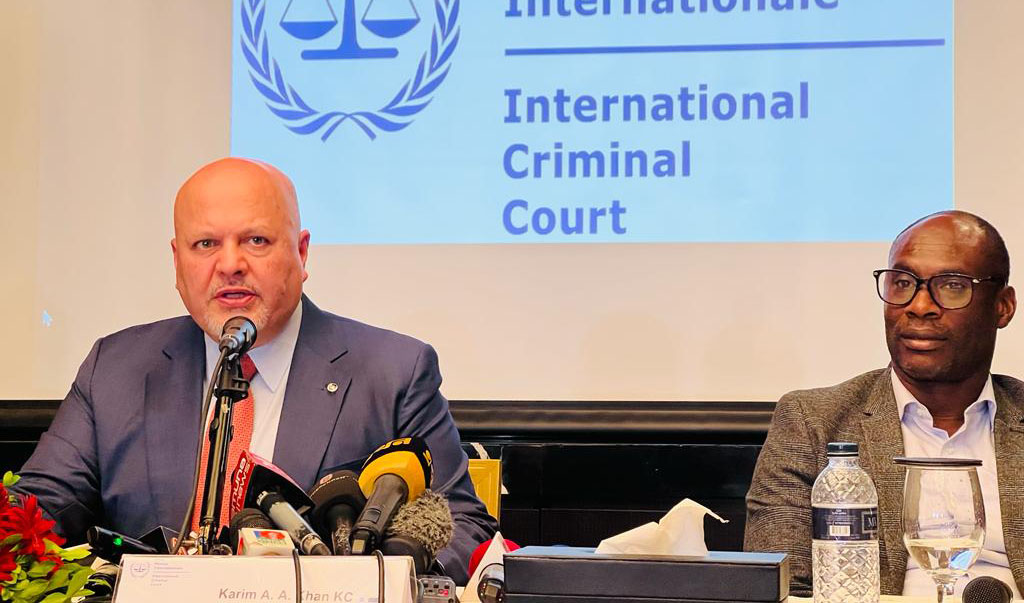DHAKA: The International Criminal Court vowed on Friday to accelerate a probe into alleged genocide by Myanmar's military against the Rohingya Muslim minority, after its chief prosecutor met survivors in Bangladesh.
Chief prosecutor Karim Khan arrived in Dhaka on Tuesday for a four-day visit to hear testimony o hear testimony from those affected by the violence.

International Criminal Court’s chief prosecutor Karim Khan speaks to reporters in Dhaka, Bangladesh on July 7, 2023. (AN photo)
He met with refugees in Bangladesh’s Cox’s Bazar, the world’s largest refugee settlement hosting about 1 million Rohingya. Most of them fled Myanmar’s Rakhine state during a military-led crackdown in 2017.
In 2018, an independent UN fact-finding mission reported widespread killings, rape and village burnings in which the Myanmar military was targeting Rohingya with “genocidal intent.”
After the reports, judges of the ICC authorized in 2019 an investigation into the event, saying that there exists a “reasonable basis to believe widespread and/or systematic acts of violence may have been committed that could qualify as crimes against humanity.”
Khan told reporters in Dhaka that he would hopefully be back in Bangladesh next year to speak to more people and will bring preliminary results.
“What I can promise is that we will have results,” he said. “The team will be working hard, we’ll try to accelerate it, and we will move forward.”
He also thanked Bangladeshis for hosting and providing humanitarian support to the Rohingya, although their country is not a signatory to the 1951 UN Refugee Convention.
“I really wish to thank and applaud and congratulate every single Bangladeshi, because your heart, your generosity, in the hour of need has saved lives,” Khan said.
“It is only by the willingness of Bangladesh, holding up the flag of justice as its own, that we have jurisdiction to investigate the crimes against the Rohingya.”
The ICC has a mandate to probe genocide, crimes against humanity and war crimes. Although Myanmar is not a state party, Bangladesh is, which allows the ICC to have jurisdiction over some crimes related to the Rohingya because of their cross-border nature.
Earlier this week, Khan met Bangladesh’s Prime Minister Sheikh Hasina and Foreign Minister A.K. Abdul Momen.
Momen assured the ICC prosecutor of Bangladesh’s “support and cooperation concerning its investigation into (the) situation in Bangladesh/Myanmar.”
The ICC’s own probe is running parallel to a genocide case filed to the ICC by Gambia, and another case taken up by Argentina’s judiciary under a court ruling upholding the principles of “universal justice.”












